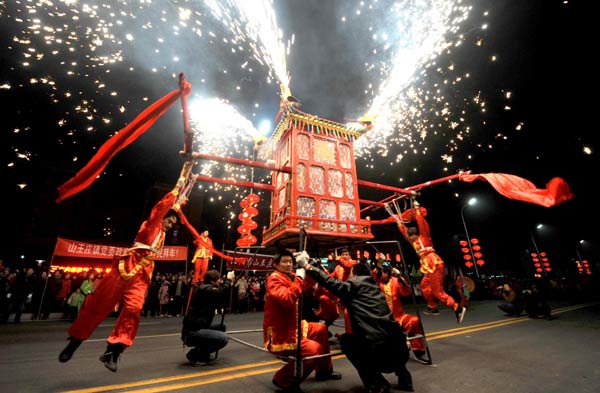Tighter rules urged to protect cultural treasures
 |
|
Villagers from Qinyang city in Central China’s Henan province perform a sedan chair lifting while walking on stilts on Feb 17. The performance is listed as local intangible cultural heritage. |
Foreign organizations and individuals will not be allowed to conduct surveys of China's intangible cultural heritage without approval from senior Chinese regulators, according to a new draft law on the protection of intangible assets.
The draft was submitted on Wednesday to the Standing Committee of the National People's Congress (NPC), the top legislature, for its third reading as its bimonthly session began.
The ban was added to the draft law in response to concerns about the lack of legal support for the urgent protection and preservation of China's cultural assets against infringements by overseas organizations and individuals, said Li Chong'an, vice-chairman of the NPC Law Committee.
Foreign organizations and individuals who violate the law may face fines ranging from 100,000 yuan ($15,000) to 500,000 yuan.
Intangible cultural heritage in the draft law refers to traditional oral literature, rituals, medicines, arts, skills, sporting activities and festivals that have been handed down from one generation to another among China's diverse ethnic peoples.
The previous version of the draft law said "individuals from outside China must report to local authorities at the county level or above about their plans to carry out a survey on intangible cultural heritage and obtain approval before they begin".
 0
0 






